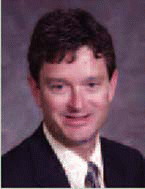Value of Certification in Sleep Medicine
Compared with the medical specialists who are or will be certified in sleep, otolaryngologists will be a distinctive group. Not only will their numbers be smaller, but those otolaryngologists more motivated to seek such certification will be unique. Within the sleep community, the sleep-trained otolaryngologist will have skills and knowledge that no other group within the specialty can acquire. As such, certification in sleep medicine provides major growth opportunities for otolaryngology in academic, public health, research and other health care arenas.
Explore This Issue
January 2007Prior to the new board certification process, a historical bias obstructed access to the field compared with other medical specialties. The opportunity to participate in the sleep lab or to be eligible to take the previous sleep medicine exam was difficult. Despite the personal and professional efforts that were often needed, I have not met one otolaryngologist who regrets pursuing sleep medicine. Uniformly, their only regret is not doing more sleep medicine earlier. The new certification process has welcomed otolaryngologists with open arms.
The Polysomnogram
For some, sleep medicine is defined by the polysomnogram. If true, the future discovery of a blood test for sleep apnea will be sleep medicine’s Armageddon (or end of the sleep medicine world as we know it). However, for those who view the field of sleep medicine not as a test but as a wide variety of clinical competencies, scoring or reading sleep studies does not define the field.
Historically the sleep lab was the center and engine driving the sleep universe, but as the engine that drove the field, it has also been its anchor. Maturity of the field will likely alter the role and ways polysomnography is performed. Otolaryngology should be a part of this change. In the future, running a sleep lab as we know it may not be a major part of sleep medicine. Entire evolving technologies will likely fill the gap.
The goal of subcertification in sleep is to improve patient care and outcomes. Comprehensive knowledge of sleep matters. Even surgeons who only do airway surgery must have a responsibility to ensure that all diagnostic evaluation is performed and appropriate therapies prescribed. To restrict otolaryngology’s participation to that which can be reached by the scalpel is as ludicrous as limiting the scope of knowledge and qualifications of the neurotologist to those disorders that can be reached by the drill.

Leave a Reply